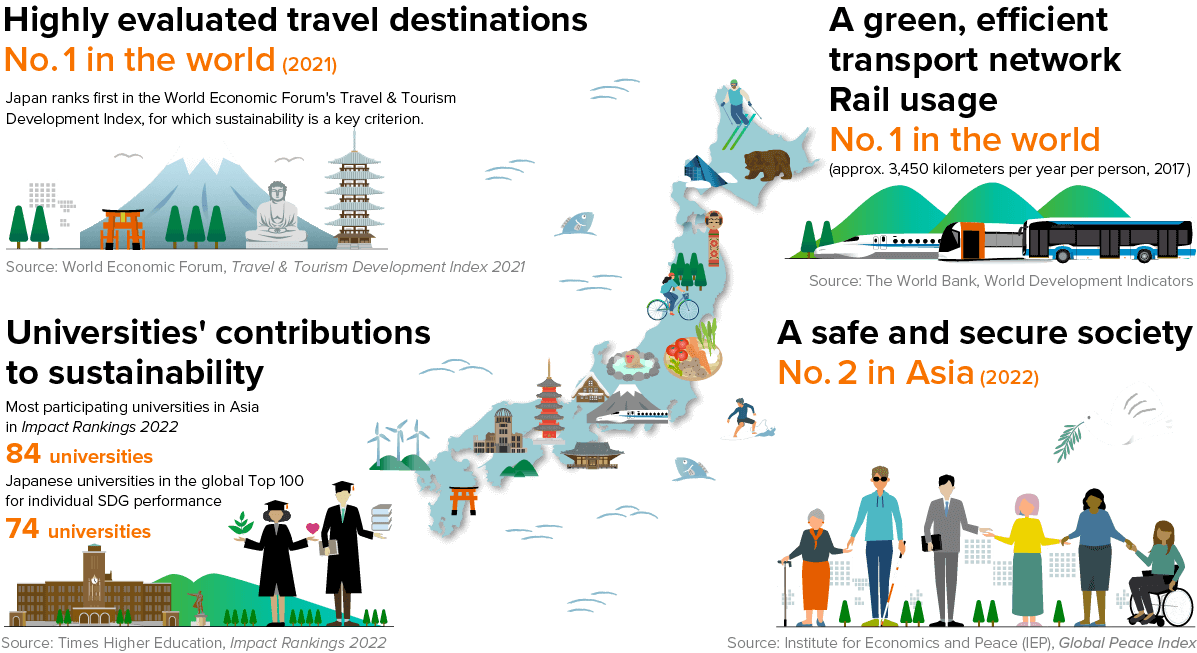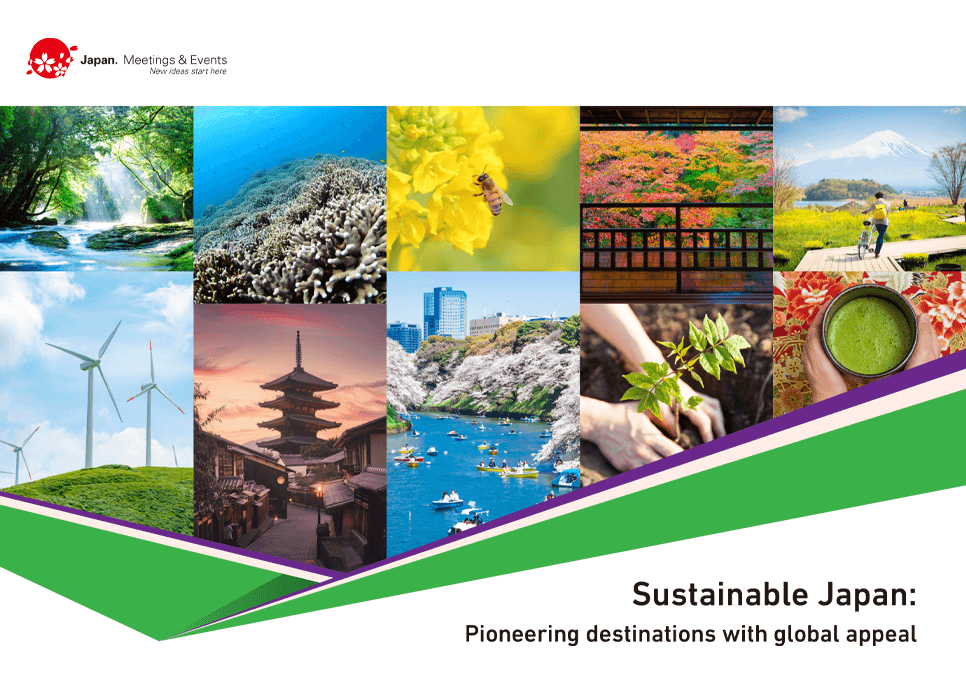Sustainability
Japanese culture prizes harmony with nature.
People are mindful of their impact on others and the wider world.
Cities actively pursue waste reduction and the theme of local production
for local consumption. And these days, there's an exciting focus on
harnessing the power of traditional culture to boost sustainability.
You will find various attractive ways to achieve your goals.
Key features of Japan
Initiatives for sustainable business events
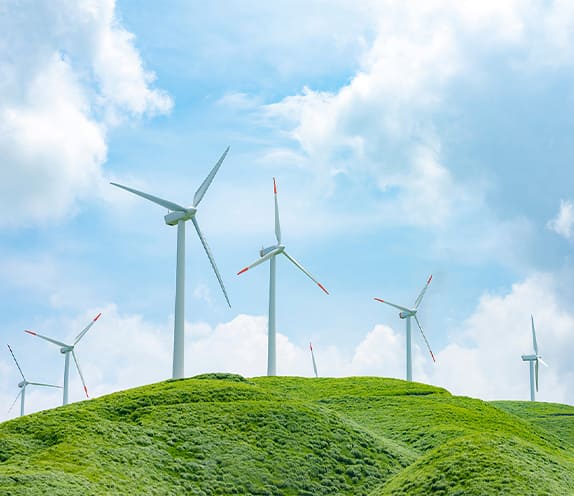
To achieve carbon neutrality, Japan has been promoting the use of solar, wind, hydroelectric, and newer forms of energy including hydrogen and biomass. Event facilities such as Pacifico Yokohama and Aichi Sky Expo have been making active use of renewable energy.

Each region in Japan has its own climate characteristics. This makes it possible, for example, to explore how to use snow and ice in Sapporo to reduce CO2 emissions, or how to harness rainwater and geothermal heat at other facilities.
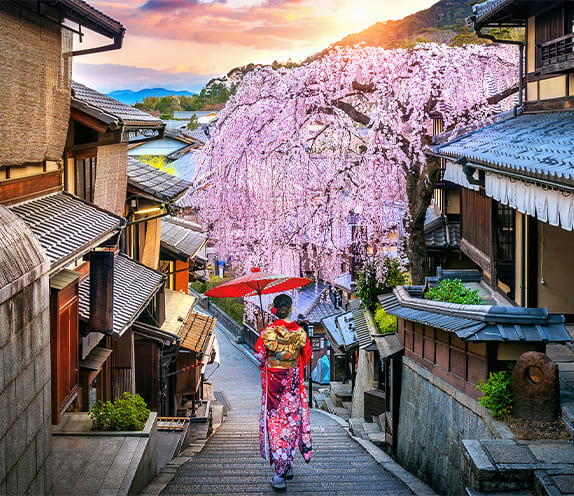
The unique culture of Japan springs from a single source: strong social bonds. Even as people adapt quickly to changing circumstances, the nation's core cultural identity persists. Flexibility and continuity are key factors in Japan's having more companies with over 100 years of history than any other country.

Initiatives are being advanced throughout Japan to make society truly open and welcoming. Okayama, for example, developed its own certification for accommodations and restaurants that cater appropriately to Muslims. And in Hiroshima, visitors can enjoy vegan and vegetarian dishes reflecting local culinary traditions.
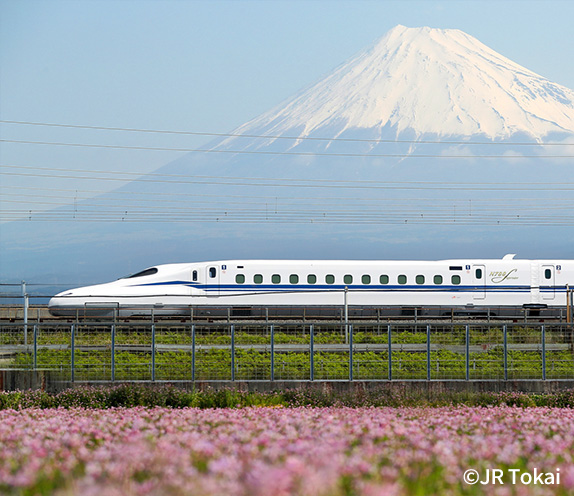
Japan's comprehensive nationwide rail network is an exceptionally efficient way to travel. Trains are fast, safe, and punctual. Cities are promoting hydrogen buses and other vehicles that incorporate clean technologies. Progress is being made throughout Japan to reduce transportation-related CO2 emissions.
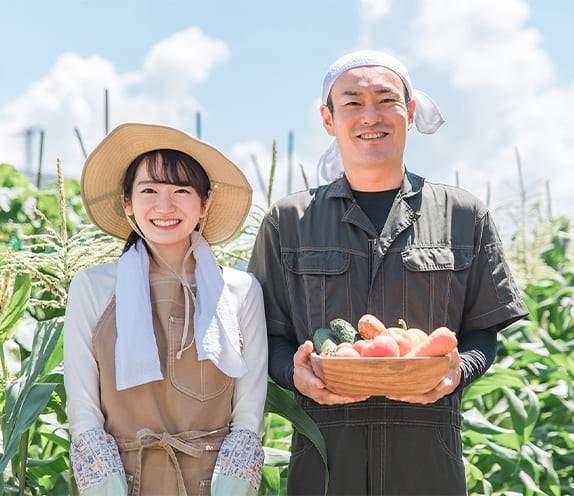
Local production for local consumption is actively promoted throughout Japan for its positive impact on CO2 emissions. In Toyama, visitors can enjoy Toyama Bay Sushi, featuring fish caught in Toyama Bay and locally grown rice. And in Chiba, a registration system for restaurants that proactively use local agricultural and livestock products cultivates a link between producers and consumers.

Building a legacy is an important theme for all business events. Yokohama's legacy initiatives include a program that encourages children to learn about cutting-edge technology and information by attending lectures and workshops that are held in conjunction with events. The city covers a portion of event costs and supports related publicity.
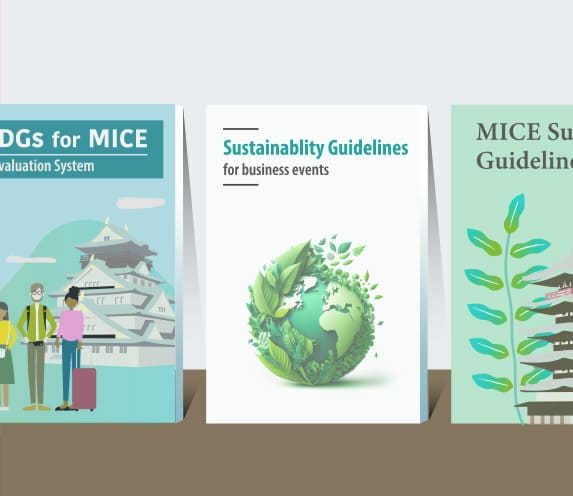
It is vital to build sustainability into every activity. Tokyo and Okinawa have sustainability guidelines for business events, and outline practical scenarios that encourage specific actions. Osaka has introduced an "SDGs for MICE evaluation" system to draw attention to the SDGs in the context of business events.
